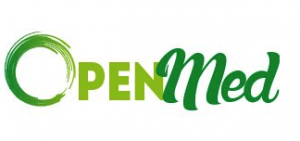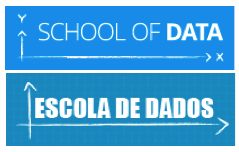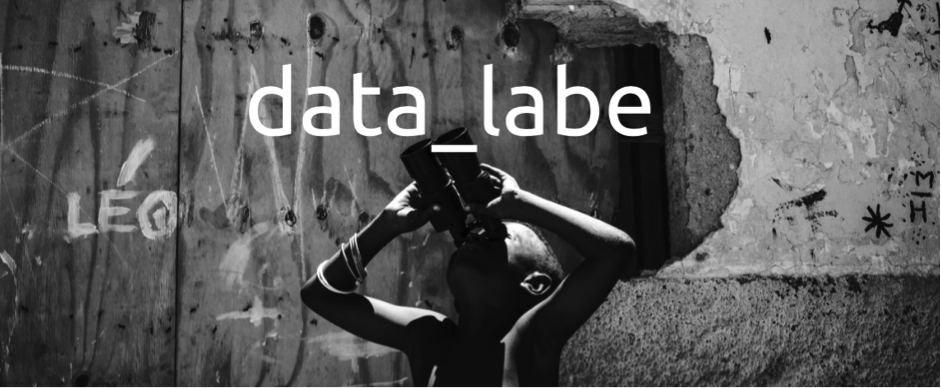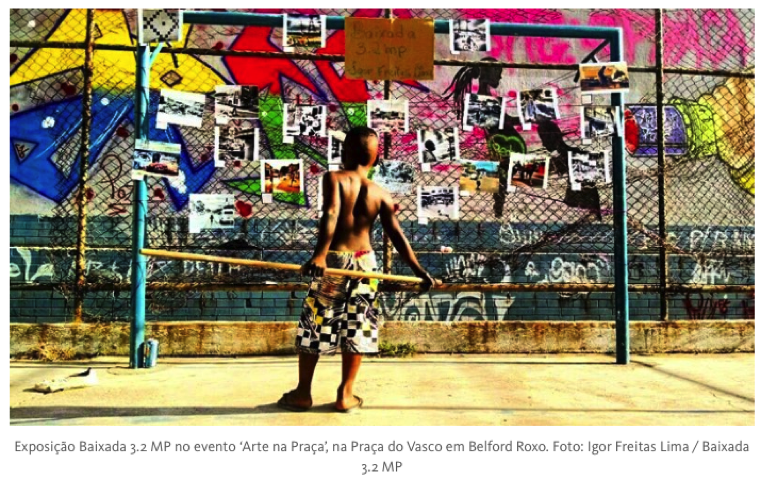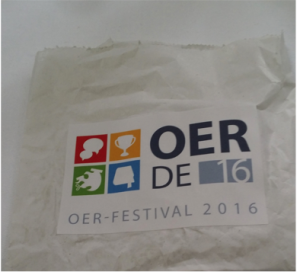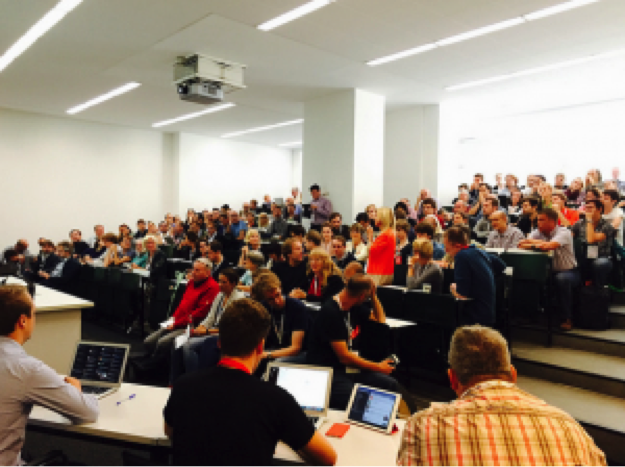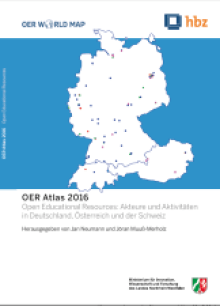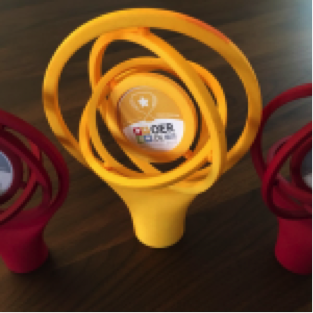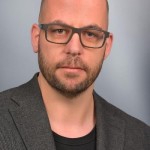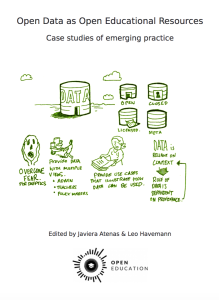Yes we can Inchallah: Morocco OER Strategy Forum
Javiera Atenas - December 9, 2016 in featured, oer, world
By Daniel Villar-Onrubia & Javiera Atenas
This week we had the opportunity to participate in the Morocco OER Strategy Forum hosted by Cadi Ayyad University in Marrakech as part of the OpenMed project. We spent two very inspiring days learning with the OpenMed colleagues about Moroccan Open Education (OE) initiatives and discussing future steps for the project. Lots of food for thought and delicious real food! Moroccan hospitality is just fantastic.
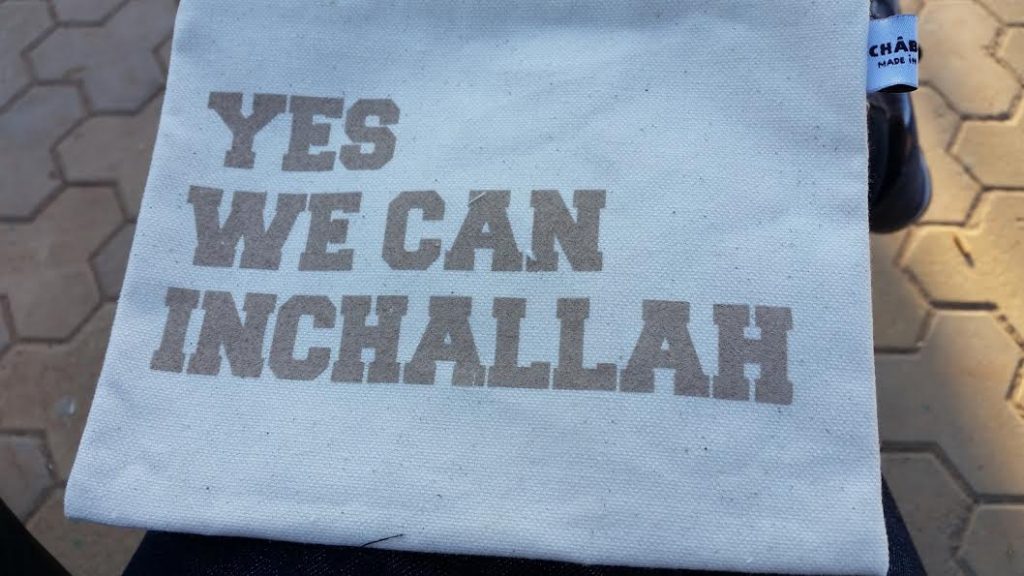
Yes we can, if God wills picture by Marcello Scalisi (UniMed)
The first day focused on the state-of-the-art of OE in Morocco and showcased relevant experiences and policies in the country presented by guest speakers from several institutions. The day started with speeches by the President of Cadi Ayyad University, Abdellatif Miraoui, and the President of UNIMED, Wail Benjelloun, who stressed that OE should be understood as a Human Right and that it offers an excellent opportunity for ensuring that universities do not become irrelevant institutions for learning in a digital age.
The opening speeches were followed by a presentation of the OpenMed Compendium, a report edited by Coventry University’s Disruptive Media Learning Lab (DMLL) with contributions from all partners that is the main deliverable of the first work package of the project. The document gives an overview of OE in the Middle-East and North African (MENA) region and includes a number of cases studies looking at different types of initiatives that could be taken as a source of inspiration by institutions interested in fostering the adoption of open education practices. The compendium also draws on insights from a series of international experts and offers some recommendations around five key themes:
- Top-down and bottom-up implementation
- Supporting staff in using and integrating open practices and open resources
- Collaborative creation in communities of practice
- Enhancing the quality of student learning
- Licensing of Open Educational Resources (OER)
The day continued with a presentation by Ilham Laaziz on GENIE (le Programme National GENIE pour la généralisation des Technologies de l’Information et de la Communication dans l’Education), a governmental programme promoting the adoption of ICTs in education. After that, speakers from several Moroccan universities presented OE initiatives developed at their respective institutions: Université Ibn Zohr in Agadir (by Ahmed Al Makari), Al Akhwayn University in Ifrane (by Hassane Darhmaoui and Violetta Cavalli), Université Mohammed 5 in Rabat (by Ilham Berrada), Université Hassan 2 in Casablanca (by Noureddine Damil) and Khalid Berrada from Université Cadi Ayyad Marrakech presented UC MOOCs. In addition, Ismail Mekkaoui Alaoui (Cadi Ayyad University) presented on the Open Book Project. You can see all the presentations in the OpenMed Slideshare page.
The last part of the day was devoted to discussing the OpenMed OER Regional Agenda, following a presentation of the draft by Daniel Burgos and Fabio Nascimbeni (UNIR).
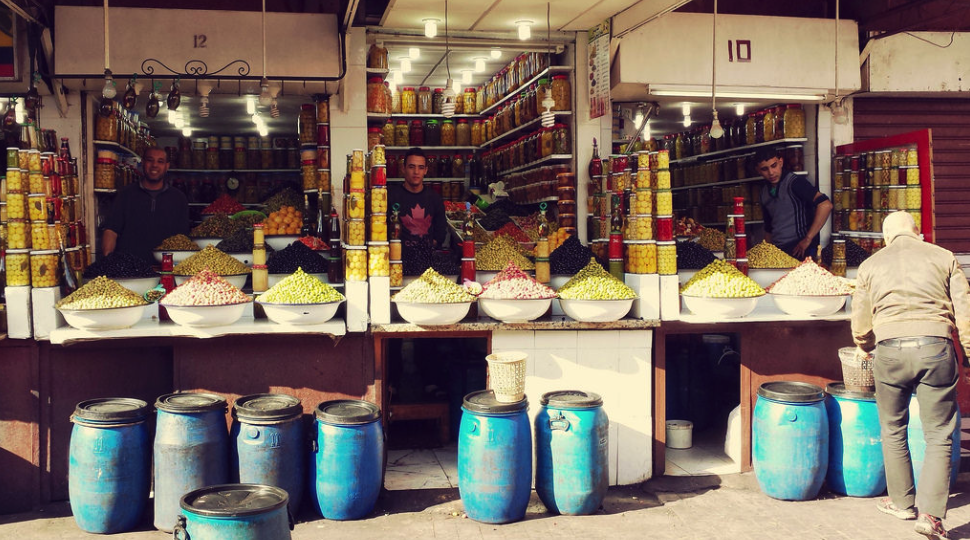
Jemaa el Fna by Daniel Villar-Onrubia
The second day of the forum continued discussions on next steps of the OpenMed project, with a particular focus on the development of institutional roadmaps for the adoption of Open Educational Practices. Likewise, the day included presentation of OER Repositories and Coventry University’s Domains of One’s Own initiative.
Most importantly, the day focused on discussing ways of formalising the good intentions and current initiatives, as one of the participants said: “It is important to coordinate our activities by creating chapeau of action, which is a common place where everyone in the Moroccan Universities can compare and share their practices and learn new ones.” It is key for Morocco to enhance and promote what they are already doing, as mentioned by other participant: “Morocco needs to commit to capacity building for their faculty staff by involving them in Open Education projects, sharing good practice and bringing people together, as communities of practice are the main driver to develop Open Education in every country.”
One of the main conclusions of the forum is that there is already a significant critical mass of OE initiatives in Morocco and the country could indeed play a leading role in the development of this field of practice in the South Mediterranean and, more broadly, the MENA region. However, better cohesion and coordination between universities is still needed in order to spread the principles of OE more widely and foster engagement with initiatives, as well as to prevent the duplication of efforts – e.g. when institutions are producing MOOCs. Other aspects that would require further development are the promotion of research aimed at understanding the adoption of open educational practices as well as efforts to improve awareness, both within and beyond the country, of Moroccan OE initiatives.

Jemaa el Fna by Daniel Villar-Onrubia
As a potential response to some of these issues, it was suggested the idea of working on a declaration at a country level, which could help build a network of institutions and harness support from the government. In this regard, the Scottish Open Education Declaration was discussed as an interesting model. Another measure suggested to help improve the visibility of Moroccan OE initiatives would be translating basic information into English and taking advantage of pre-existing platforms such as the OER World Map.
If you want to learn more about #OpenMed activities on Open Education in the MENA region have a look to their webpage and blog and think about contributing with a video message to their collection of videos of OER experts, helping them to inspire educators into adopting Open Educational Practices.
 Open Education Working Group
Open Education Working Group 